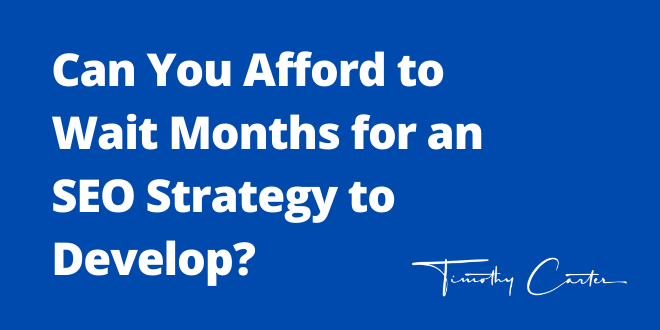
Is It Possible To Build Links For SEO Without Content?
February 24, 2023
Six Ways To Be More Effective As A Sales Coach
March 10, 2023SEO is complex, it changes frequently and even the most confident and experienced people make mistakes. I consider myself an expert in search engine optimization (SEO), but with its complexity, you have to take my statement with a grain of salt. Its difficulty often scares off newcomers, but it’s something I’ve come to embrace.
SEO is hard. And that’s a good thing. And hopefully, by the end of this article, I’ll convince you why that’s the case – and help you navigate this complex marketing niche.
The Difficulty Of SEO
You could make the claim that SEO is easy – or at least, that some elements of SEO are easy. In fact, you can learn the basics of the strategy in an afternoon.
But there are a few important factors that make SEO difficult for many people to approach.
Search ranking factors. Did you know there are more than 200 ranking factors that affect how your website ranks in Google search engine results pages (SERPs)? That’s a lot to keep track of – and those are just the factors we know about.
Google algorithm complexity. How does Google work, exactly? Could you explain it concisely? The general function is easy enough to summarize, but the inner workings are incredibly complex.
Google lack of transparency. Making matters even more difficult, Google isn’t exactly forthcoming about how its algorithm works. Much of what you know comes from vague pointers from Google (such as “serving high-quality content to users”) and detailed experiments from other SEO practitioners. Accordingly, you can never be 100% confident in your tactics and frameworks.
Regular changes. Google likes to shake things up. New updates are rolled out frequently, forcing search marketers to learn new things and change old strategies rapidly.
Why SEO Complexity Is A Good Thing
I understand that SEO complexity can be both annoying and stressful. I’ve experienced that annoyance and stress. But overall, I think SEO’s difficulty and steep learning curve are good things, and here’s why:
Higher quality results (and better user experience). Remember that Google exists to serve web users. The company’s main goal is providing users with the most streamlined, most secure, most valuable experience possible. If SEO was simple, any business with a bit of money could show up for any search they wanted – which means users would constantly face spam and irrelevant businesses in search results. In other words, the difficulty of SEO makes it harder for companies to abuse the system, ultimately providing better results and better experiences to end-users.
Evolution and progress. I’ll admit, it’s frustrating when one of my clients gets knocked out of the top spot due to a novel update from Google. But the alternative is that Google seldom or never changes – which means everyone would be stuck with the same search experience for years at a time. As a search user myself, I appreciate the increasing sophistication and value presented by Google. It’s technological progress I wouldn’t want to miss.
Limited competition. It’s much harder to get visibility and rank highly in SERPs when 100 other companies are competing with you for the top spot. But if half those companies are afraid to enter the SEO game because it’s too hard or too challenging, it’s much easier for me to get the rankings I want.
Job security. SEO isn’t the most complicated strategy to learn, but it’s not the easiest either. With fewer people getting involved and fewer people staying up-to-date, I enjoy a ton of job security.
How To Deal With The Difficulty Of SEO
Okay, so SEO is difficult. What can you do about it?
There’s certainly nothing you can do to persuade Google to make things easier (nor would you want to). But you can take the following steps to make your life as an SEO expert much easier:
See yourself as a scientist. Don’t make the mistake of believing you can learn every lesson about SEO and immediately apply them. Instead, you have to see yourself as a kind of scientist, conducting new experiments on a regular basis to challenge your assumptions and gather new data.
Don’t get too attached to any strategy. Every few months, Google launches a disruptive update that shakes up SEO for at least one niche. Generic strategies – like “create good content” – may never go out of style, but specific tactics are changing constantly – so don’t get too attached to any one of them.
Get help. It’s tempting to approach SEO by yourself, especially if you’re supporting your own blog or small business, but it’s much more effective to get help. Hire an SEO agency, partner up with other SEO practitioners or just talk to other experts. We’re stronger as a community, so don’t hesitate to reach out.
It’s true that SEO is a challenging strategy to utilize, especially if you don’t have much experience in the field. But SEO’s difficulty is a feature, not a bug, and it serves a few important purposes. Once you adapt to the difficulty of the strategy and come to appreciate its qualities, you’ll be in a position to boost your search engine rankings even higher.
Originally appeared in Forbes





